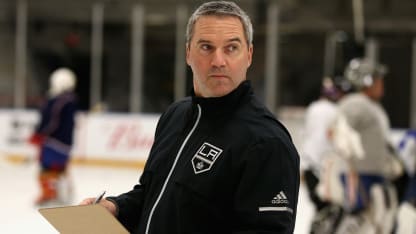Goalie coaches connect during pause to increase professional development
Use of podcasts, webinars help expand position-specific network, knowledge base

© Sean M. Haffey/Getty Images
Use of podcasts, webinars help expand position-specific network, knowledge base

© Sean M. Haffey/Getty Images